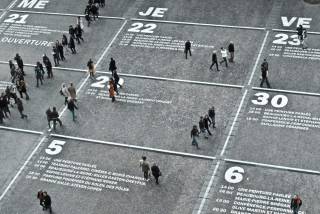The co-leader of EduKnow Nelli Piattoeva and Rebecca Boden of Tampere University’s New Social Research programme guest-edited a double special issue of the journal International Studies in Sociology of Education entitled “Escaping numbers? The ambiguities of the governance of education through data”.
The collection presents research on governance by numbers that spans national education systems and scales of governance from global to local, and diverse sectors of formal education from early childhood education to higher education. As such, the collection offers contextually rich accounts from around the world. It also includes reviews of three recently published books on this issue, and a provocative afterword from Radhika Gorur – a leading Australian academic in the area of the sociology of quantification in education. The double special issue emerged out of a fruitful international meeting at Tampere University organized by Piattoeva and Boden in the spring of 2017, bringing together national and international scholars to share their work on this global phenomenon.
The special issue is framed by a desire to trouble the role of numbers in education– to see them as both powerful and valuable, but also as vulnerable and subjective. The contributors probe the open, contested and contestable nature of numbers – to understand how they had both escaped and how their worst effects could be escaped from. The centrality and influence of numbers as modern policy instruments and technologies of the governance of education is widely understood. This international collection of papers pushes our thinking further and, in particular, troubles and offers alternatives to the recurring determinism and inevitability with which numbers tend to be approached by researchers. To give citizens and policy makers more to think with when dealing with numbers, the collection queries what happens when we do not start with an implicit assumption that numbers are all-powerful.
Rather, as numbers are shaped by, and in turn shape, practices, and practices are uncertain – they remain open, contested and contestable.
The editorial introduction to the special issue is available in open access here.
